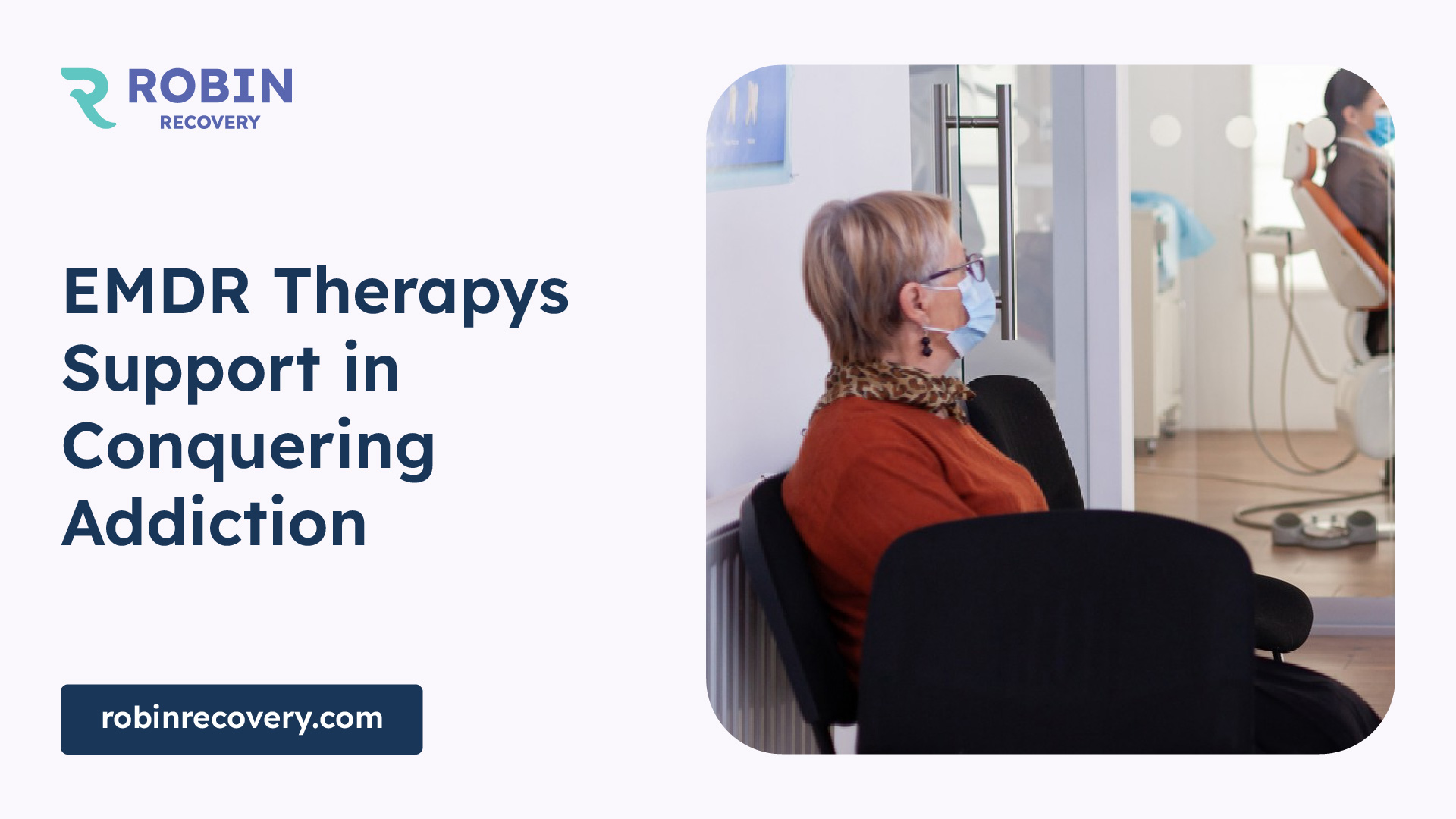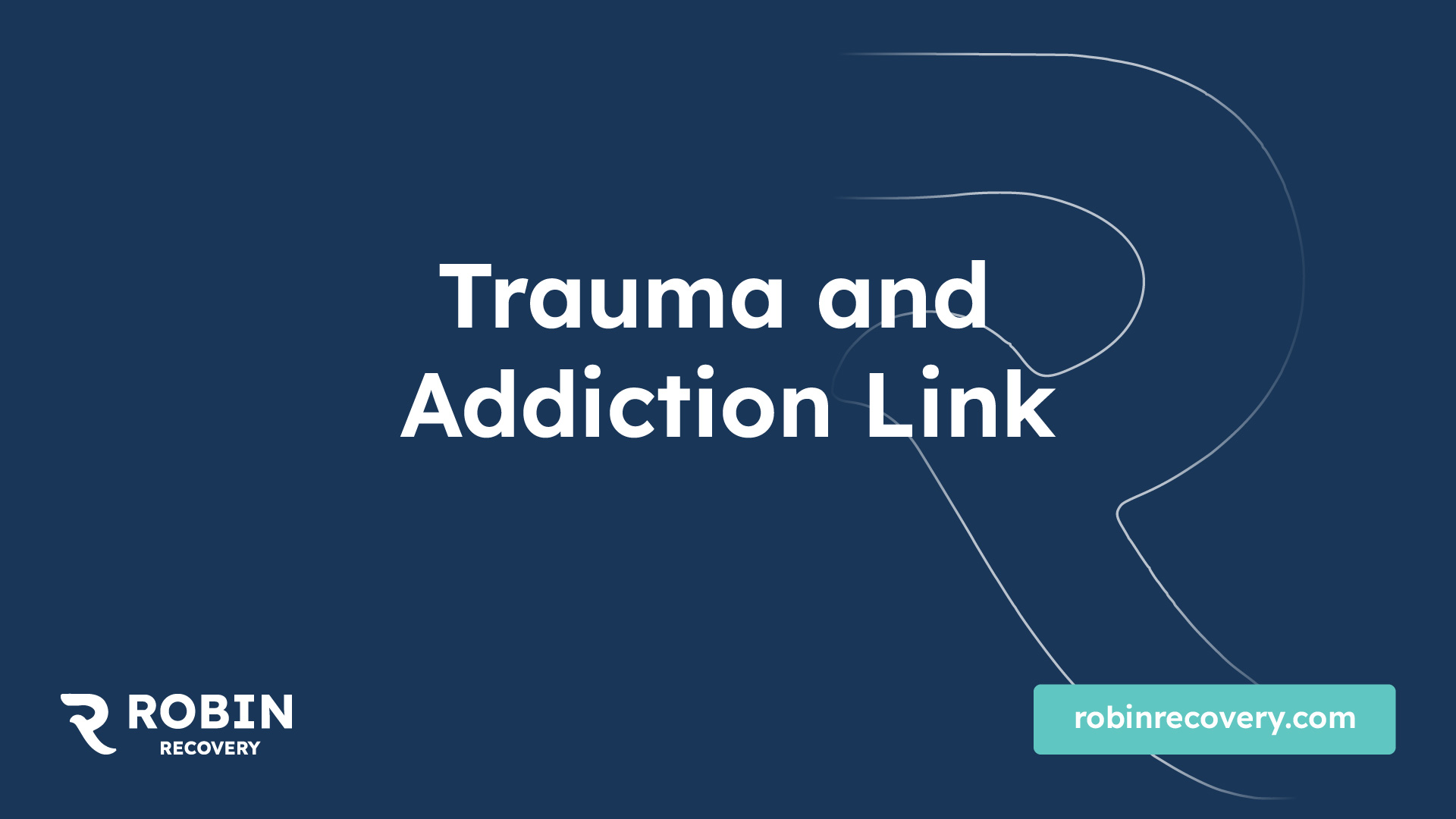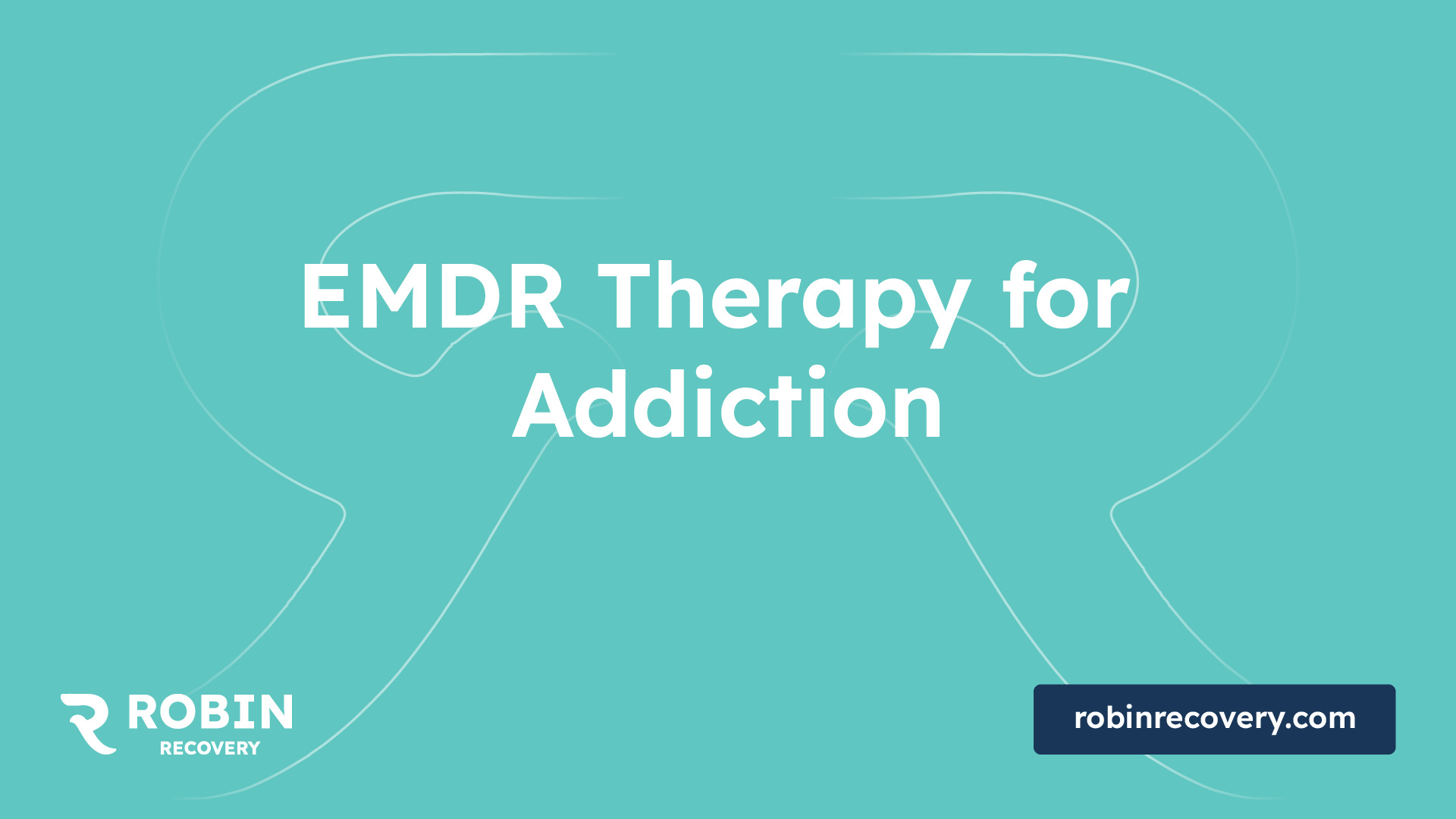EMDR Therapys Support in Conquering Addiction

Understanding EMDR Therapy
EMDR therapy has emerged as a significant method for addressing trauma and its relationship with addiction. Its structured approach is often employed to help individuals reprocess overwhelming memories and emotions associated with distressing experiences.

The Basics of EMDR
EMDR, which stands for Eye Movement Desensitization and Reprocessing, is an 8-step therapeutic process developed by Francine Shapiro that allows individuals to confront and process traumatic memories. This therapy helps in altering emotions, thoughts, or behaviors that result from these distressing experiences without requiring in-depth discussions about the events themselves.
The process includes:
How EMDR Works
EMDR operates on the principle of reprocessing traumatic memories. It enables clients to shift their perspective from feeling trapped in past experiences to embracing a more empowering belief such as “I survived it and I am strong”. The therapy utilizes bilateral stimulation, which can be achieved through guided eye movements, auditory tones, or tactile taps, facilitating information processing.
A significant advantage of EMDR is that it allows individuals to address trauma without extensive verbal communication. This method promotes healing by enabling clients to engage with their memories at a deeper emotional level without having to recount the details in a traditional talk therapy format [3].
Through this process, EMDR can effectively reduce distress linked with traumatic memories, potentially helping individuals conquer addiction by addressing underlying issues rather than merely focusing on the addictive behaviors. For more insights into how EMDR therapy aids in addiction recovery, explore articles on life after addiction: what to expect and experiential therapy: 7+ innovative treatments to help you heal.
Trauma and Addiction Link
Understanding the link between trauma and addiction is essential for effective treatment. Research indicates that these two issues often co-occur, with significant implications for recovery.

Co-Occurrence of Trauma and Addiction
Trauma and substance use disorder (SUD) frequently coexist. Studies suggest that traumatic memories and conditions such as post-traumatic stress disorder (PTSD) have a strong association with SUD. According to data, up to 45% of individuals with Substance Use Disorder also experience comorbid PTSD [4].
Table 1 presents a summary of the relationship between trauma and addiction:
FactorDescriptionCo-occurrence RateUp to 45% of SUD patients have comorbid PTSDImpact of Childhood TraumaIncreases likelihood of substance misuseTreatment RecommendationFocus on trauma-informed careCommon TreatmentsProlonged exposure, structured writing therapy
This information highlights the importance of addressing PTSD in addiction treatment. Unfortunately, many rehabilitation centers do not provide integrated treatment for both SUD and PTSD. Trauma-focused therapies tend to be more effective than non-trauma-based approaches for individuals suffering from PTSD.
Trauma Symptom Influence on Addiction
The symptoms of trauma can profoundly influence addictive behaviors. Individuals with unresolved traumatic experiences may turn to substances as a coping mechanism, leading to uncontrollable drug use or drinking [5]. The risk of developing substance use disorders is increased among those with traumatic memories, creating a difficult cycle of dependency.
Trauma symptoms such as anxiety, depression, and emotional numbing can drive individuals to seek relief through substance use. This use often escalates over time, further complicating recovery efforts.
For effective treatment, professionals encourage integrating therapies like EMDR to specifically target trauma-related symptoms. This approach can help break the cycle between trauma and addiction, enabling individuals to gain control over their substance use.
Understanding how EMDR can support individuals struggling with these interconnected issues is key to fostering lasting recovery. For more insights into the healing potential of EMDR therapy, explore our detailed article on what is EMDR therapy?.
EMDR Therapy for Addiction
EMDR Targeting Trauma Symptoms
EMDR (Eye Movement Desensitization and Reprocessing) therapy aims to help individuals reprocess traumatic memories through an 8-step process guided by a qualified mental health professional. This approach can be effective in addressing underlying trauma symptoms that contribute to substance use disorders (SUDs).
By focusing on traumatic memories, EMDR therapy can assist individuals in resolving painful experiences and alleviating emotional distress. This reprocessing may reduce cravings for substances like alcohol, tobacco, and cannabis. The therapy addresses the mental and emotional scars of trauma, creating a pathway for recovery that doesn't solely rely on substance use as a coping mechanism.
Trauma Symptoms Targeted by EMDRDescriptionAnxietyHeightened feelings of worry or panic related to past traumaIntrusive MemoriesUnwanted recollections that trigger distressEmotional NumbingDifficulty in experiencing feelings due to trauma

Effectiveness of EMDR for Substance Misuse
Research demonstrates that EMDR therapy can significantly improve outcomes for individuals dealing with dependencies such as substance use disorders. It is frequently implemented in drug and alcohol rehabilitation facilities to tackle the trauma symptoms that may influence substance use [6].
People with historical trauma have an increased probability of developing SUDs, which complicate their ability to manage drinking or drug use. The effectiveness of EMDR leads addiction treatment professionals to recommend its use under certain circumstances.
Substance Use Disorder (SUD) ImprovementsBenefit of EMDR TherapyReduction in cravingsAlleviation of underlying trauma symptomsDecrease in relapse ratesAddressing emotional pain and fostering healthier coping mechanismsEnhanced self-controlImprovement in emotional regulation and decision-making
Understanding how EMDR therapy can help with addiction opens new avenues for recovery strategies, bridging the gap between past trauma and present coping mechanisms. For those seeking further insight into related topics, such as the nuances of addiction recovery, visit our page on life after addiction: what to expect.
Benefits of EMDR Therapy
In the context of addiction, EMDR therapy offers several significant benefits that assist individuals in navigating their recovery journey. This therapeutic approach not only addresses trauma-related symptoms but also has a profound impact on mental health conditions commonly linked to substance use disorders.
Reduction in Trauma-Related Symptoms
EMDR therapy is designed to help individuals reprocess traumatic memories through an 8-step process guided by a mental health professional. This method facilitates recovery from trauma and addresses underlying trauma symptoms that contribute to substance use disorder (SUD). By confronting and reprocessing painful emotions linked to traumatic experiences, individuals may experience a reduction in distress related to their past.
The table below summarizes the effectiveness of EMDR therapy in reducing trauma-related symptoms:
Symptom TypeReduction PercentagePTSD Symptoms50-70%Depression Symptoms40-60%Anxiety Symptoms50-80%
Research has shown that trauma-focused treatments, including EMDR, can effectively reduce PTSD symptoms in patients with SUD and co-occurring PTSD.
Impact on PTSD, Anxiety, and Cravings
In addition to reducing trauma-related symptoms, EMDR therapy also positively affects conditions such as PTSD and anxiety, which are often entangled with addiction. Through EMDR, individuals develop coping mechanisms to manage their cravings and triggers. The therapy helps address the emotional and psychological factors that lead to substance misuse.
Clinical trials since the development of EMDR therapy in 1989 illustrate its ability to facilitate healing from trauma more rapidly than many traditional methods. Many individuals report a significant decrease in cravings and anxiety levels, enhancing their overall capacity to maintain sobriety and actively participate in their recovery.
By stabilizing emotional health and addressing traumatic experiences, EMDR therapy empowers individuals to reclaim control over their lives and navigate the complexities of addiction recovery more effectively. For a deeper understanding of EMDR therapy and its processes, refer to our article on what is EMDR therapy?.
EMDR Research and Evidence
Studies on EMDR and Substance Use Disorder
Research indicates that Eye Movement Desensitization and Reprocessing (EMDR) is an evidence-based treatment for post-traumatic stress disorder (PTSD) that can significantly help those with Substance Use Disorder (SUD). A study published by the National Center for Biotechnology Information outlines the effectiveness of EMDR in reducing PTSD symptoms in patients with SUD and comorbid PTSD [4].
Key findings from the study include:
FindingPercentagePatients with SUD experiencing comorbid PTSDUp to 45%Effectiveness of trauma-focused treatmentsEffective in reducing PTSD symptoms
It highlights the importance of integrating PTSD treatment into SUD rehabilitation, as most centers do not provide comprehensive treatment for both issues. Trauma-focused treatments, including EMDR, are recommended over non-trauma-focused approaches to address the unique needs of these patients.
EMDR Therapy for Comorbid PTSD
EMDR therapy has been recognized as a treatment of choice for PTSD not only by the National Institute for Health and Clinical Excellence but also by the World Health Organization. Research suggests that EMDR may lead to a greater reduction in PTSD symptoms compared to treatment as usual (TAU) when combined with standard SUD rehabilitation methods. The primary outcome measured in these studies is the change from baseline in PTSD symptom severity at a 6-month follow-up [4].
The study indicates that trauma-focused interventions, such as EMDR, can be integrated safely into SUD treatment without adversely affecting substance use outcomes. Overall, the accumulated evidence supports the efficacy of EMDR therapy in addressing both PTSD and addiction, ensuring that patients receive holistic care for their mental health and substance use challenges.
For further insights into how EMDR therapy works, visit our page on what is EMDR therapy?. For information on life after overcoming addiction, check our article on life after addiction: what to expect.
Implementation of EMDR Therapy
EMDR Process Overview
The EMDR therapy process involves eight distinct phases designed to help individuals process traumatic memories effectively. During the therapy sessions, the therapist activates the traumatic memory of the patient and guides them using bilateral stimulation, such as eye movements. This approach helps lessen the emotional impact of the memories over time [5].
In each session, the client focuses on distressing material while simultaneously engaging in an external stimulus, like lateral eye movements, hand-tapping, or audio stimulation. This dual focus is thought to facilitate access to traumatic memory networks, enhancing the processing of information and forming new associations between traumatic memories and more adaptive information [2].
EMDR PhasesDescription1. History TakingGather relevant history and treatment goals.2. PreparationEstablish trust and explain the EMDR process.3. AssessmentIdentify specific memories and target images.4. DesensitizationProcess the traumatic memories with bilateral stimulation.5. InstallationFocus on positive beliefs related to the traumatic memories.6. Body ScanIdentify physical tension related to the trauma.7. ClosureEnsure the client is grounded before leaving the session.8. ReevaluationAssess the progress and process any remaining distress.
Integrating EMDR into Treatment
EMDR can be effectively integrated into a comprehensive treatment plan for individuals facing addiction. It is particularly advantageous for addressing trauma-related symptoms, as research shows that EMDR can reduce anxiety and trauma symptoms. However, the efficacy can vary, highlighting the importance for counselors to assess the suitability of EMDR for each individual client [3].
Utilizing EMDR therapy allows individuals to confront and reprocess painful emotions tied to traumatic memories and adverse childhood experiences related to addiction. This therapeutic approach emphasizes the creation of a safe and supportive environment, which is essential for emotional healing. It demonstrates that psychological trauma can heal over time, similar to the physical healing of the body.
Integrating EMDR into holistic addiction treatment can lead to significant improvements in recovery outcomes by addressing both the symptoms of trauma and the underlying causes of addiction. Individuals seeking recovery can benefit from learning how EMDR therapy can assist in their journey towards healing.
References
[2]:
[3]:
[4]:
[5]:
[6]:
[7]:
